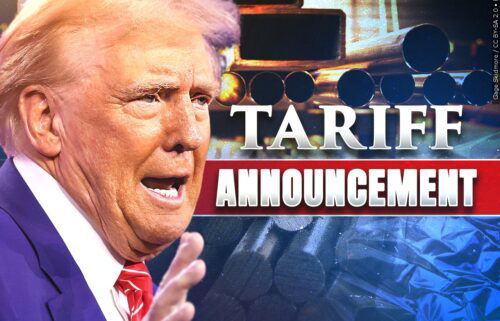Juventus and Man Utd shares plunge as Super League plan collapses
Investors have rendered their verdict on the European Super League: it’s dead.
Stock market gains made by breakaway clubs Juventus and Manchester United have been erased after all six English clubs that had committed to the controversial project decided to pull out late on Tuesday, followed by three more teams on Wednesday.
Shares in Juventus dropped 12% in Milan on Wednesday, bringing the stock below its closing price on Friday, the final trading session before the shock announcement of the new league. Manchester United’s stock, which trades in New York, dropped more than 6% on Tuesday and was heading even lower in premarket trading.
Following a huge outcry from soccer’s governing bodies, the elected leaders of France and Britain, and legions of their own fans, the architects of the Super League have admitted defeat.
Arsenal, Chelsea, Liverpool, Manchester City, Manchester United and Tottenham were followed out of the project by AC Milan, Inter Milan and Atlético Madrid, leaving only Real Madrid, Barcelona and Juventus. In an interview with Reuters on Wednesday, Juventus chairman Andrea Agnelli said he didn’t think the project could continue.
“I remain convinced of the beauty of that project, of the value that it would have developed to the pyramid, of the creation of the best competition in the world, but evidently no … I don’t think that project is now still up and running.”
Investors were already bailing out of shares in the two breakaway clubs that are publicly traded.
The announcement of the Super League on Sunday kicked off a fierce power struggle that threatened to upend the economics of European football. The battle pitted the billionaire owners of the 12 founding teams, which are among the richest clubs in the world, and Wall Street’s biggest bank — JPMorgan — against pretty much everyone else.
The founding clubs were to be permanent members of the Super League, a structure that resembled Major League Baseball or the National Football League and one that promised eye-popping paydays from media rights and merchandising.
But it ran counter to the traditions of European football, with its roots in industrial working class neighborhoods, where even the poorest clubs are promoted to top leagues if they win and no amount of money can protect rich teams from relegation if they lose.
By seeking to wall themselves off from competition, the founding clubs were accused of orchestrating a massive cash grab that would harm smaller competitors, and potentially doom the elite Champions League, which is contested by top-division clubs from across Europe.
The biographies of the club owners reinforced the notion that money was the driving force behind the decision to start the league.
American billionaire John Henry’s Fenway Sports Group, which owns the Boston Red Sox, is at the helm of Liverpool. Another American billionaire, Stan Kroenke, controls Arsenal and US sports franchises including the LA Rams and the Denver Nuggets. Russian oligarch Roman Abramovich owns Chelsea and Emirati royal Sheikh Mansour bin Zayed Al Nahyan owns Manchester City.
Chinese investors are behind Inter Milan, and US billionaire Paul Singer’s Elliott Management pulls the strings at local rival AC Milan. Juventus’ long time owners are the Agnelli family, which made their money from ventures including carmaker Fiat.
The Glazer family, which also owns Tampa Bay Buccaneers, runs Manchester United. Protesting fans made their feelings about the American bosses known on Monday, holding a banner outside the club’s stadium that said: “Created by the poor, stolen by the rich.”
By contrast, Bayern Munich and teams in Germany, where commercial investors are prevented from controlling more than 49% of most major clubs, were notable by their absence from the league. As were clubs in France, where President Emmanuel Macron has slammed the new league.
Media giants were quick to distance themselves from the proposed new competition, with Amazon, BT Sport and Sky, which is owned by Comcast, ruling themselves out of bidding for rights estimated to be worth billions per season.
“We believe part of the drama and beauty of European football comes from the ability of any club to achieve success through their performance of the pitch,” Amazon Prime Video said in a statement.


